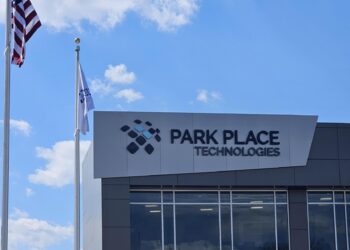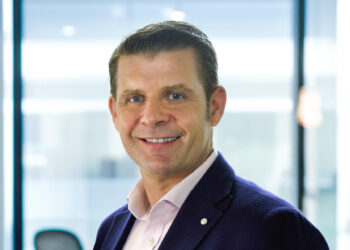IT channel leaders have given a mixed verdict to US tech giants’ plans to help transform the UK into an “AI superpower, with one greeting it as “much-needed good news” and others questioning how it will be powered.
Microsoft, NVIDIA and a range of other US tech giants last week pledged to invest $42bn in the UK.
The former has promised to pump in $30bn between 2025 and 2028 – including $15.5bn in additional capital commitments.
NVIDIA announced that it and its AI infrastructure partners are scaling up UK AI factories with up to 120,000 NVIDIA Blackwell GPUs, meanwhile.
To put that in perspective, that’s 120 larger than Isambard-AI, the most powerful supercomputer in the UK today, NVIDIA CEO Jensen Huang said.
The UK had the expertise and research facilities to excel in AI, but “what’s missing is the AI infrastructure”, Huang told the BBC.
“This is the week that I declare the UK will be an AI superpower,” he said.
The infrastructure spending is part of a wider ‘Tech Prosperity Deal’ announced last week between the two countries. It also covers agreements in areas such as of AI, quantum computing and nuclear research.
But what did channel leaders make of the news? Here we round up three tantalising takes…
Steve Rigby, Co-CEO of SCC parent Rigby Group – “Finally, some much-needed good news”

Rigby was buoyed by the news, arguing it will bring a “a wave of optimism for the UK’s ambition to be a global AI powerhouse”.
With the government proposing to create a new AI Growth Zone in the North East (the new ‘Stargate UK’ project will be based in Northumberland), the investment will have a “direct impact on regional growth”, Rigby wrote in a LinkedIn post.
“This is a clear demonstration that the benefits of this technological revolution can and must be felt across the entire nation, creating high-skilled jobs far beyond London,” opined Rigby, whose SCC business is based in Birmingham.
NVIDIA’s commitment to deploying 120,000 of its advanced GPUs across the UK is “crucially” being matched by strategic partnership, Rigby added.
“The collaboration between British firm Nscale, OpenAI, and Microsoft to deliver the Stargate UK project is a powerful synergy of UK and US ingenuity. It proves that our unique position in the world can attract the very best to build with us,” he wrote.
“When you add the multi-billion pound investments from Microsoft, Google, CoreWeave, and Salesforce, a clear picture emerges: the UK is now seen as a premier destination for long-term technology investment. As a nation, we must continue to foster this environment.”
Danny Moore, CEO, Options Technology – “To succeed at AI the UK needs an aggressive strategy focused on natural gas and small scale nuclear”

According to the BBC, the campaign group Foxglove is among those worried by the power demands required. It warned the UK could end up “footing the bill for the colossal amounts of power the giants need”.
Nuclear power and gas turbine power stations would be required to fuel the new AI factories needed to turn the UK into an AI superpower, Huang conceded.
In a LinkedIn post, Danny Moore, President and CEO of London-based IT infrastructure provider Options Technology, said that Huang had “hit the nail on the head”.
“Most people are aware of the prohibitive energy costs in the UK. Electricity prices to industry and the consumer are 3x to 5x those in most of the US, or China,” he wrote.
“What does that mean though?
“When we costed the Options Technology AI infrastructure expansion in Iceland the annual savings in power costs vs the UK equate to the cost of the hardware (including the Blackwells) to build the facility!
“Everyone is aware of the massive Capex required to build out AI infrastructure. Over a 5 year lifetime the excess power cost from locating in the UK is currently up to 5x the Capex bill.
“Jensen is absolutely right. To succeed at AI the UK needs an aggressive strategy focused on natural gas and small scale nuclear.”
Mark Yeeles, VP, Secure Power Division, Schneider Electric – “What a difference a day makes”

The announcements will “accelerate the UK’s AI leadership at pace,” Yeeles wrote in a LinkedIn post.
“At Schneider Electric, we’re delighted to see this progress – and welcome the Government’s focus on AI Growth Zones, particularly across the North East and Greater Manchester, with Careers at the Department for Science, Innovation and Technology (DSIT) continuing to play a central role,” he wrote.
“This moment represents an opportunity to deliver AI at scale while ensuring sustainability, energy resilience, and efficiency remain front and centre.”













